Home » Posts tagged 'TheTyee.ca' (Page 7)
Tag Archives: TheTyee.ca
Postmedia, Torstar Take Taxpayer Cash, Fight to Keep Public in Dark about Cuts
Postmedia, Torstar Take Taxpayer Cash, Fight to Keep Public in Dark about Cuts
Media giants continue to fight disclosure of evidence about 2017 deal that shuttered 36 newspapers.

Newspaper giants Torstar and Postmedia have both just claimed millions in taxpayer subsidies from the federal government’s controversial news media fund.
But at the same time they’re counting the cash, they’re continuing to fight in court to keep the public from learning about their 2017 deal that resulted in 36 newspapers closing across Canada.
Postmedia’s latest financial report included $7 million from the fund in its revenues — and that’s just for nine months.
Torstar claimed $4.5 million in subsidies from the fund, also just for nine months, when it released its quarterly financial report Wednesday.
Critics feared the fund, which promises almost $600 million over five years, would enrich shareholders or hedge funds while media corporations continue to slash staff and close newspapers.The Tyee is supported by readers like you Join us and grow independent media in Canada
That’s what Postmedia and Torstar did in 2017. The two corporations swapped 43 newspapers, and on the same day the deal was announced closed 36 of them. Almost 300 people lost their jobs and 36 communities lost a news source. In many of them, competition was replaced with a monopoly controlled by one of the two corporations.
That situation sparked a continuing Competition Bureau investigationinto “alleged anti-competitive conduct.” The bureau later announced it was pursuing the investigation under the criminal conspiracy provisions of the Competition Act.
And while Torstar and Postmedia are taking taxpayers’ money, the two companies have been fighting to keep the public or prosecutors from seeing documents seized in searches of their offices or used to obtain search warrants.
…click on the above link to read the rest of the article…
The Ghost Election Issue We Need to Get Real about: Personal Debt
The Ghost Election Issue We Need to Get Real about: Personal Debt
Canadians are so deep in the red it colours how we see vital issues.

Today we manufacture armored vehicles for the brutal regime in Saudi Arabia while fretting about domestic job losses if we don’t.
Conservative Leader Andrew Scheer pledges to slash Canada’s already paltry foreign aid budget by 25 per cent in favour of consumer tax cuts.
Climate change is the defining issue of this century, yet Canada has the highest per capita carbon emissions in the G20 and is far from a global leader in fighting fossil fuels.
What happened to the storied Canadian character?
The reason Canada cannot act in a more moral manner might lie in ballooning amounts of household debt. Canadians now owe an eye-watering $2.2 trillion or 178 per cent of disposable income — a measure that has doubled in the last 20 years. Personal bills now amount to more than our entire GDP, making us the most indebted citizenry in the G20 and fourth highest in the world.
Over half of Canadians report they are only $200 per month away from insolvency.
How can you care about climate change or global stability when your credit cards are maxed out or you are dodging debt collectors? Owing vast amounts of money seems now a defining Canadian characteristic and is increasingly enabled by indulgent political leaders. Andrew Scheer and Canada’s conservatives are unapologetic in pandering to those who gorged on cheap credit.
The belated Conservative campaign platform pledges to cut infrastructure investment by $18 billion in favour of reduced taxes. Scheer’s simple message is parsed for those most myopically interested in their pocketbook: “If you pay income tax, you will pay less under my government.”
…click on the above link to read the rest of the article…
Quit Chastising Brazil, Canada. You’re a Climate Killer, Too
Quit Chastising Brazil, Canada. You’re a Climate Killer, Too
Some want global intervention against ‘rogue’ climate states. That may not end so well for us.
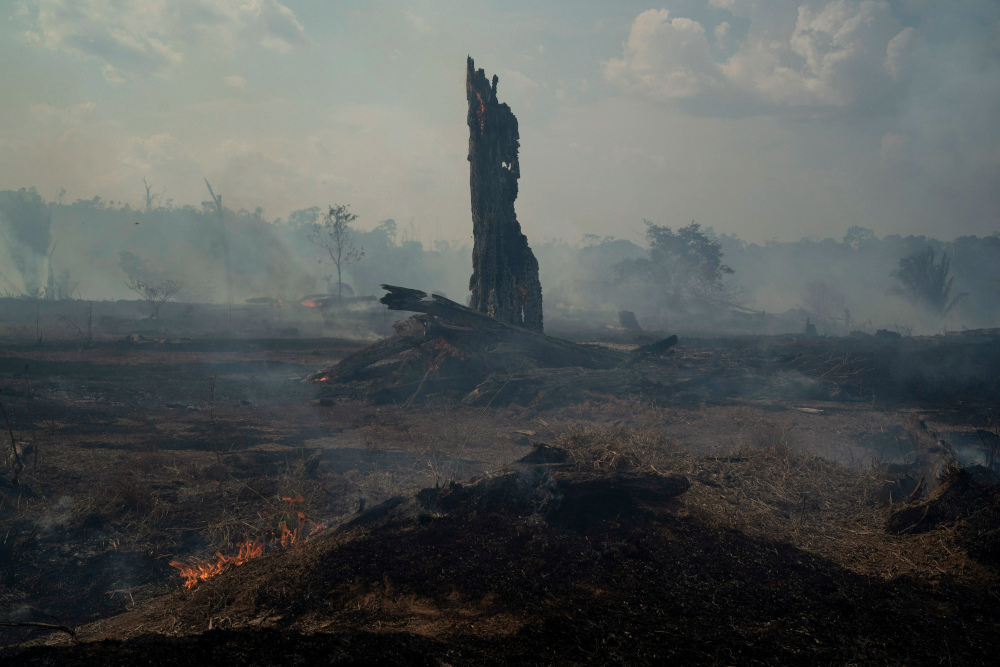
The two both ask and answer their own question in the Globe and Mail piece.
“Is it acceptable that a single government can unilaterally adopt environmental policies that put millions at risk?” they write. “It is urgent that the international community find ways to influence rogue states whose irresponsible policies accelerate global warming and undermine the collective effort to address the existential threat posed by climate change.”
It’s a comfortably sanctimonious argument, especially from inside the glass house of Canadian climate policy.
Admittedly Bolsonaro is an ogre whose popularity among Brazilians has plummeted since he was elected last year.
But Axworthy and Rock should be careful what they wish for — if the world really was empowered to intervene when rogue states ignore the climate crisis, would we get off easily?
Canada was recently ranked last of the G7 economies in terms of meaningful climate action — tied with the U.S. under Donald Trump. Of all the G20 countries, Canadians produce the most greenhouse gases per capita.
While the Justin Trudeau government touted its pledge of $15 million to fight Amazon wildfires on behalf of the planet, this represents only 0.5 per cent of the $3.3 billion in taxpayer subsidies that Canada shovels at the fossil fuel sector each year.
…click on the above link to read the rest of the article…
As Election Nears, Canada’s Biggest Oil Firm Is Noticeably Quiet
As Election Nears, Canada’s Biggest Oil Firm Is Noticeably Quiet
Conservative Leader Andrew Scheer says he’s Canada’s energy ‘champion.’ Yet he opposes climate policy Suncor supports.
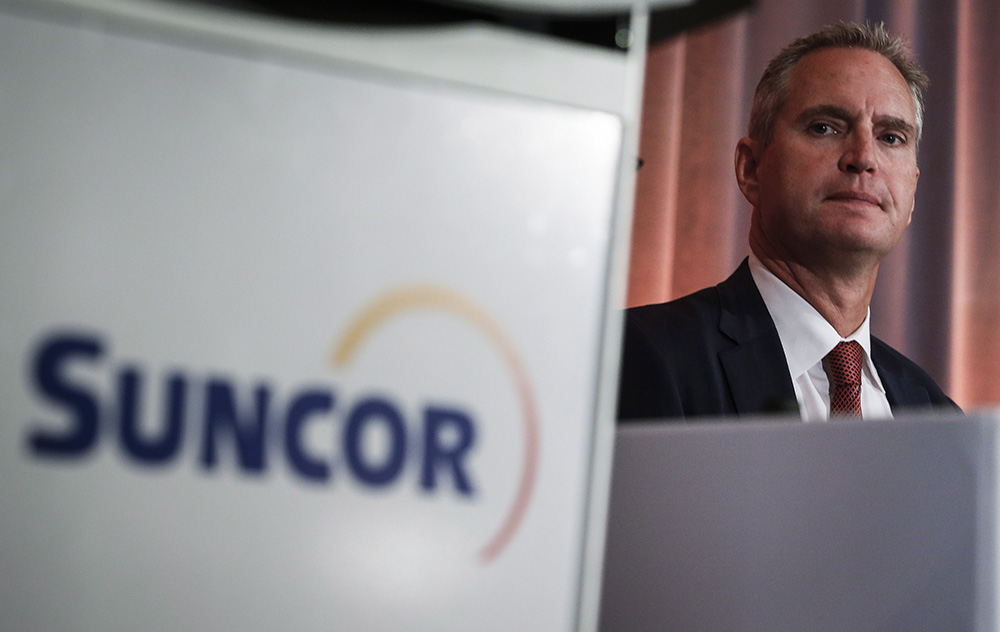
As we race towards a federal election that will determine if and how Canada responds to the climate emergency, one central player is noticeably absent.
Suncor is without a doubt the biggest and most influential oilsands company in the country. Contrary to what you might think, however, it has a more aggressive position on climate action than federal Conservative Party Leader Andrew Scheer. While Scheer promises to scrap Canada’s national carbon price as soon he gets into office, Suncor argues the Liberal policy should stay.
“We have and continue to support the Pan-Canadian Framework as a path forward to reduce greenhouse gas emissions,” Nathan Maycher, Suncor’s director of climate change and sustainability integration, told The Tyee in an email.
In 2017, the company employed 12,381 people, brought in over $32 billion in revenue and produced roughly 1.2 million barrels of bitumen per day, which is over one-third of the industry’s total output, according to research from the Corporate Mapping Project.
Yet when three major oilsands producers — Canadian Natural Resources Ltd., Cenovus Energy and MEG Energy Corp. — ran an “open letter to Canadians” in 30 newspapers this July arguing that “shutting down Canada’s oil industry will have little impact on global [emissions] targets,” Suncor stayed silent. And the company’s CEO Mark Little doesn’t appear to be involved with an effort by small and mid-level Calgary oil and gas executives to get Scheer elected prime minister this October.
…click on the above link to read the rest of the article…
How Our Lifestyle Is Driving the Climate Crisis and How We Can Change It
How Our Lifestyle Is Driving the Climate Crisis and How We Can Change It

From athleisure to electronics to our innocent binging habits, it becomes clear that everything is interrelated. She argues that we need to understand the map if we’re going to make any changes.
The Tyee talked with Schlossberg over the phone to learn more. Here’s our conversation, edited for brevity and clarity.
The Tyee: Inconspicuous Consumption tells us we’re emitting carbon even when we think we’re not. Are you trying to drive us all into caves of despair?
Tatiana Schlossberg: My goal first and foremost is, you know, caves of despair, but after that I wanted to help people understand the scale of the problem of climate change. So often we hear about opposite ends of the spectrum: a plastic water bottle on one end, and then how we need to be 100 per cent renewable energy in 10 years. I think that doesn’t make a lot of sense to people. It’s this huge global problem, and those are sort of the only two things that we’re told are needed to fix it?
As I learned more, I felt like there was a lot of stuff that had been left out of the conversation that could help people see themselves in the larger story and understand the scope and the shape of the problem. I want to broaden the conversation as well as bring the surprising or hidden things into the light.
Speaking of surprising, before I read the book the internet felt so ethereal, so environmentally innocent, but it’s not.
…click on the above link to read the rest of the article…
Changing Climate, Vanishing Old Growth Bring Increase Fire Risk for Coastal Forests
Changing Climate, Vanishing Old Growth Bring Increase Fire Risk for Coastal Forests
‘It’s getting worse,’ expert warns. ‘As the climate is shifting, these factors are becoming more extreme.’
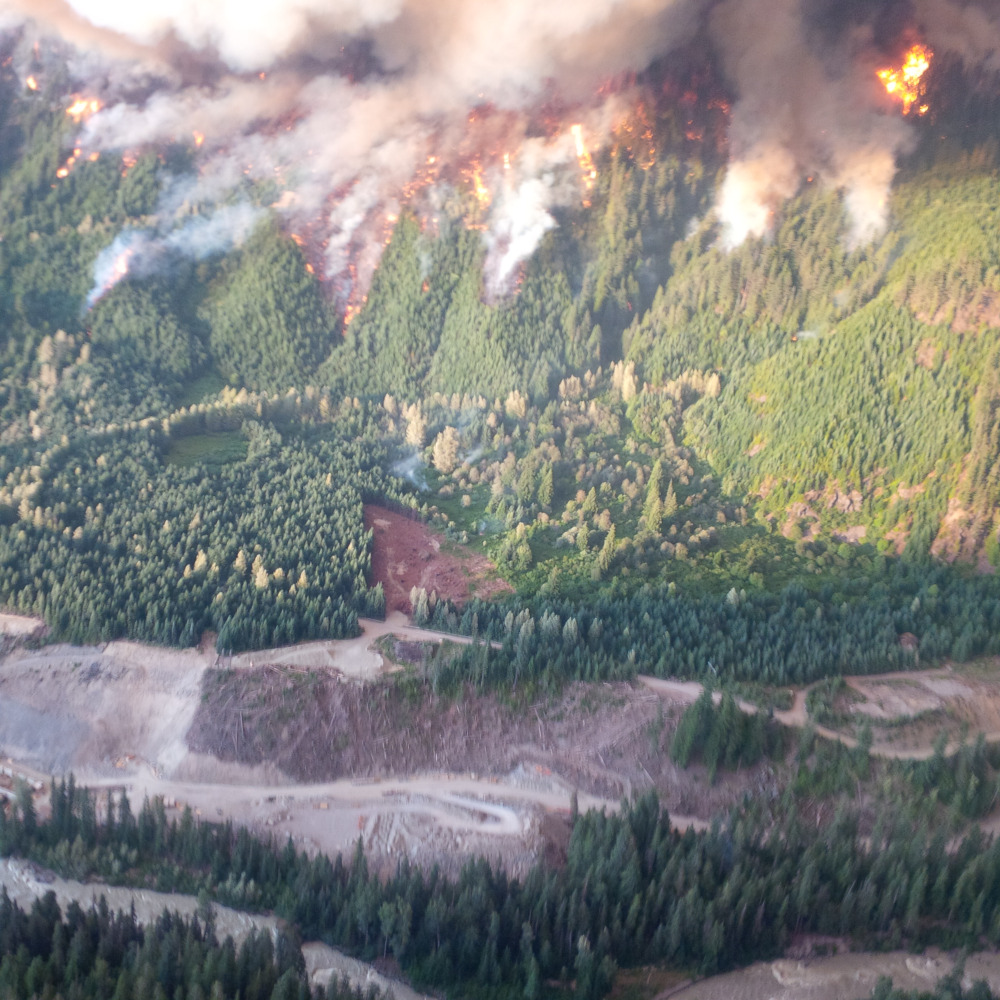
It rains in Zeballos. A lot. The village, perched at the end of a long inlet on the west coast of Vancouver Island, is surrounded by mountains and rainforest.
But despite the region’s average annual precipitation of 163 inches — more than three times that of Vancouver — the community of about 100 people was threatened when lightning sparked a wildfire last August. About 168 hectares burned over two weeks, as flames loomed over houses, and burning trees and debris tumbled down the slopes toward the village.
Within a month, evacuation orders were placed on 27 properties. Ten months later, the order still hadn’t been fully lifted because of fears the burned slopes might slide onto the community.
The fact that some of the wettest forests in North America are now considered candidates for wildfires signals the severe shifts being caused by climate change. It means that old growth trees, critical for forest resiliency and traditionally quite fire resistant, are increasingly under threat.
“We’re seeing impacts in places in coastal B.C. that are very unique, [which] speaks to the multi-year drought we’ve been experiencing,” said Lori Daniels, a professor of forestry and conservation science at the University of British Columbia.
Last week the BC Wildfire Service released a seasonal report predicting the B.C. coast — along with Vancouver Island — will experience “above normal fire conditions” this summer.
…click on the above link to read the rest of the article…
‘The Reality Bubble’: Or Pretending Ourselves to Death
‘The Reality Bubble’: Or Pretending Ourselves to Death
Our illusions and blind spots keep us happy. And could doom us.

We are also richly endowed with metaphorical blind spots, which enable us to deceive ourselves even about what can see perfectly well.
Tong, a very experienced science communicator, was the co-host of the Discovery Channel’s Daily Planet for a decade. Her book, The Reality Bubble, illustrates its argument. It begins with interesting little factoids. Your face is crawling with tiny eight-legged mites; the alarm barks of prairie dogs, analyzed by computer, reveal “words” defining the nature of the threat: coyote, hawk, tall guy in a blue shirt. We may keep consuming such factoids like salted peanuts and begin to lose the point of them.
But Tong uses every factoid to back up her thesis. We never knew about the mites until the microscope let us examine ourselves up close and very personal. We thought we were the only language users until we used computers that could detect every nuance in a prairie dog’s bark. Our unaided senses operate in a very narrow spectrum, and the “real world” we perceive is just a reconstruction in our brains of electromagnetic and sound waves that impinge on our eyes and ears.
Blind spots aren’t just physical. Leeuwenhoek developed the microscope in the 17th century, and promptly discovered microscopic life. It took two more centuries until Louis Pasteur identified microbes as causes of disease, and another century before we began to realize that not all “germs” are bad: most help keep us alive and healthy.
Tong writes that we can be blind to the obvious individually, and as a society.
…click on the above link to read the rest of the article…
‘Climate Crisis’ Open Letter to Media: Who’s Responded (So Far)
‘Climate Crisis’ Open Letter to Media: Who’s Responded (So Far)
Five-point plan on Tyee finds allies in CWA union and top US journos.
Now the responses are rolling in, some from beyond Canada’s borders.
Here’s how Holman came to write the widely shared letter and what it’s helping to trigger.
As record wildfires raged out of control across B.C., spreading smoke into the Rockies and Alberta, Holman looked out the window of his Calgary home and thought about a book he’d read as a child. The World of the Future: Future Cities predicted “if drastic steps are not taken to control pollution and achieve some sort of ecological balance,” the city of the 21st century could become a “polluted pesthole.”
The book’s image of gas-mask-wearing citizens in a dystopian streetscape choked by smog “always stuck with me,” Holman said. The view of smoke turning the sun into a sickly orange dot was strikingly similar. “That was really troubling.” The Tyee is supported by readers like you Join us and grow independent media in Canada
Even more disturbing to Holman, though, was the failure of Canadian news media to accurately report the underlying reasons for this hellscape: the greenhouse gas emissions that are warming Canada twice as fast as the rest of the world.
Holman, an investigative reporter, associate professor of journalism at Mount Royal University and an occasional Tyee contributor, found that of the 182 media pieces produced about the wildfires last summer by outlets like the Calgary Herald and Vancouver Sun, only 14 of those pieces mentioned the scientific reality that global temperature rise caused by the burning of fossil fuels and other human activities contributed to the fires’ unprecedented intensity and destruction.
…click on the above link to read the rest of the article…
Alberta Imposes New Fracking Restrictions Near Dam after Quakes
Alberta Imposes New Fracking Restrictions Near Dam after Quakes
Restrictions come as industry-related tremors have rattled nerves and raised concerns.
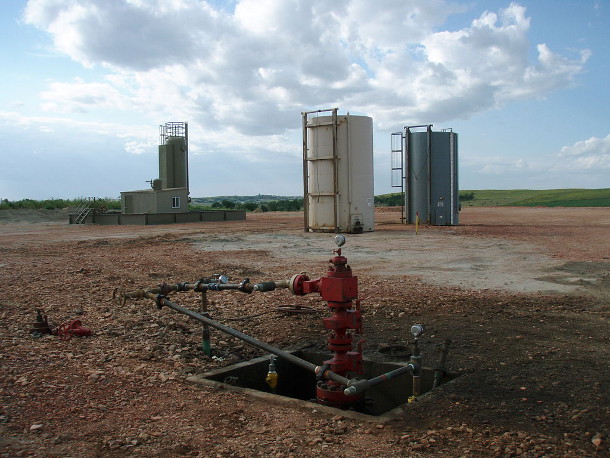
The regulator’s new regulations follow a wave of tremors set off by Canada’s oil and gas industry, as well as the release of major scientific papers documenting how fracking and other forms of fluid injection have caused devastating earthquakes.
Such industry-triggered events, some as great as magnitude 5.7, have destroyed homes, caused landslides, and left taxpayers with millions of dollars of damage in Oklahoma, Korea and in China, where citizens have been killed.
Last week, the industry-funded regulator issued an order restricting fracking activity near TransAlta’s Brazeau Dam located 55 kilometres southwest of the densely drilled Drayton Valley following a magnitude 4.3 earthquake in the region last March.
The exact cause of that earthquake is not known, but the oil and gas industry has previously rocked the region with tremors caused by wastewater injection or by gas extraction, which causes rock to fracture and collapse.The Tyee is supported by readers like you Join us and grow independent media in Canada
The regulator officially banned fracking within five kilometres of the dam site in the deep Duvernay formation, and within three kilometres of the dam site in the shallower formations above the Duvernay.
It also imposed requirements that any fracking operator in the three-to-five-kilometre zone that causes a magnitude 1.0 earthquake must now report the event to the regulator and cease operations totally if it triggers quakes greater than magnitude 2.5.
…click on the above link to read the rest of the article…
Dear Journalists of Canada: Start Reporting Climate Change as an Emergency
Dear Journalists of Canada: Start Reporting Climate Change as an Emergency
A five-point plan for mainstream media to cover fewer Royal babies and a lot more of our unfolding global catastrophe.
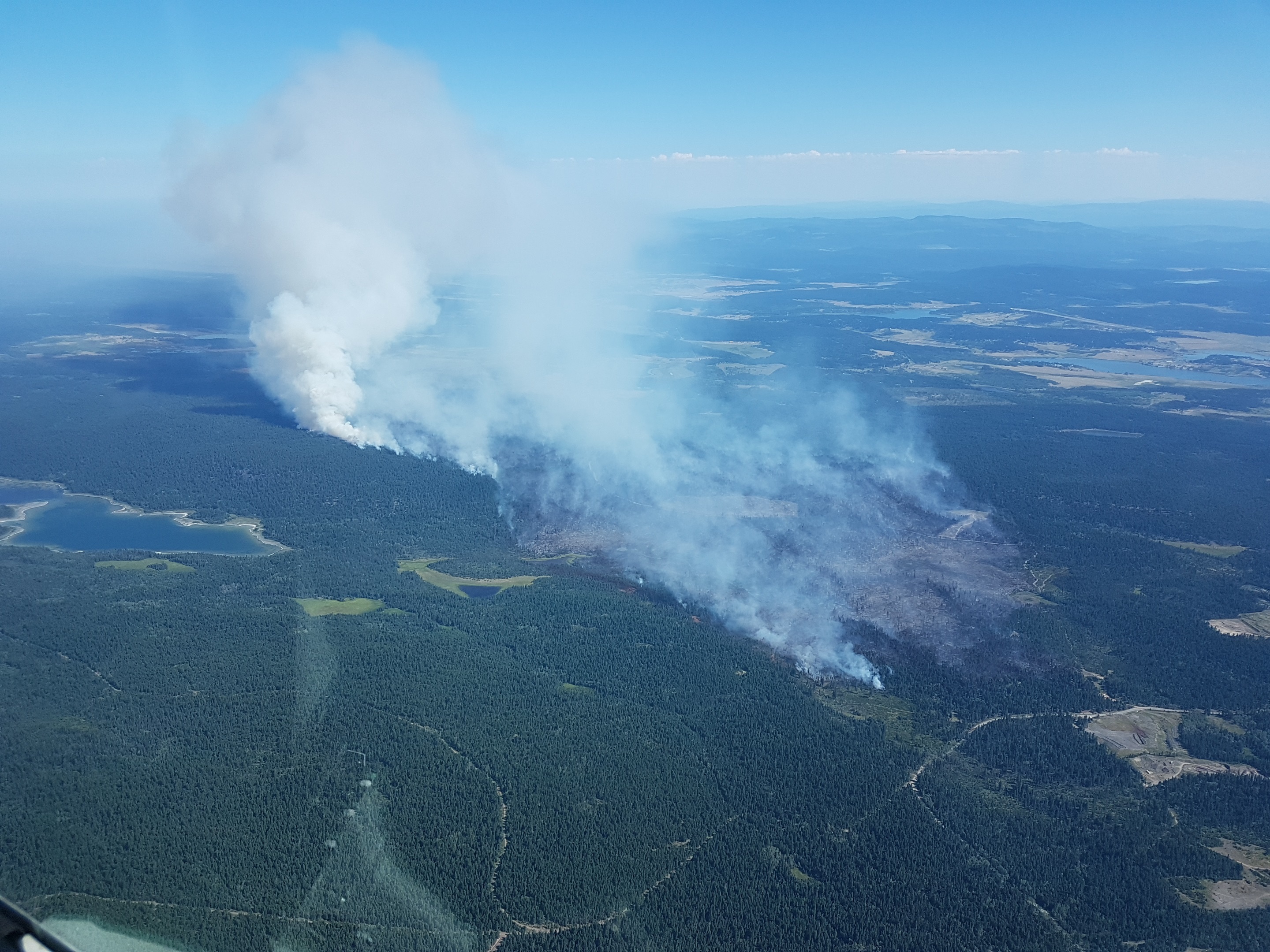
To:
Karyn Pugliese, president, Canadian Association of Journalists
Martin O’Hanlon, president, CWA Canada
Fiona Conway, president, Radio Television Digital News Association
John Hinds, president and chief executive officer, News Media Canada
Jerry Dias, national president, Unifor
Cc:
Canada’s editors, news directors, publishers and station managers
On May 6, the United Nations released a scientific report warning that around a million species are threatened with extinction due to human activity, including climate change. But, according to an analysis by Media Matters for America, on the day of that release, the nightly newscasts of ABC and NBC felt it was more important that their audiences learned about the birth of the newest Royal baby — someone who will likely never have any say over their day-to-day lives. And I’ve found most of Canada’s 15 most-read English language daily broadsheets felt the same way.
Between May 6 and 7, 13 of those newspapers failed to front stories about the United Nations’ devastating finding. Instead, the National Post ran a story about the Duke and Duchess of Sussex’s son, with 10 others teasing that birth on their front pages. Eight of the teasers were placed above-the-fold, next to a photograph, or both — drawing reader attention to pictures of Harry, Meghan and their beaming well-wishers.
…click on the above link to read the rest of the article…
Wildly Underestimated Oilsands Emissions Latest Blow to Alberta’s Dubious Climate Claims
Wildly Underestimated Oilsands Emissions Latest Blow to Alberta’s Dubious Climate Claims
As disaster looms, petro province lets industry call the shots.
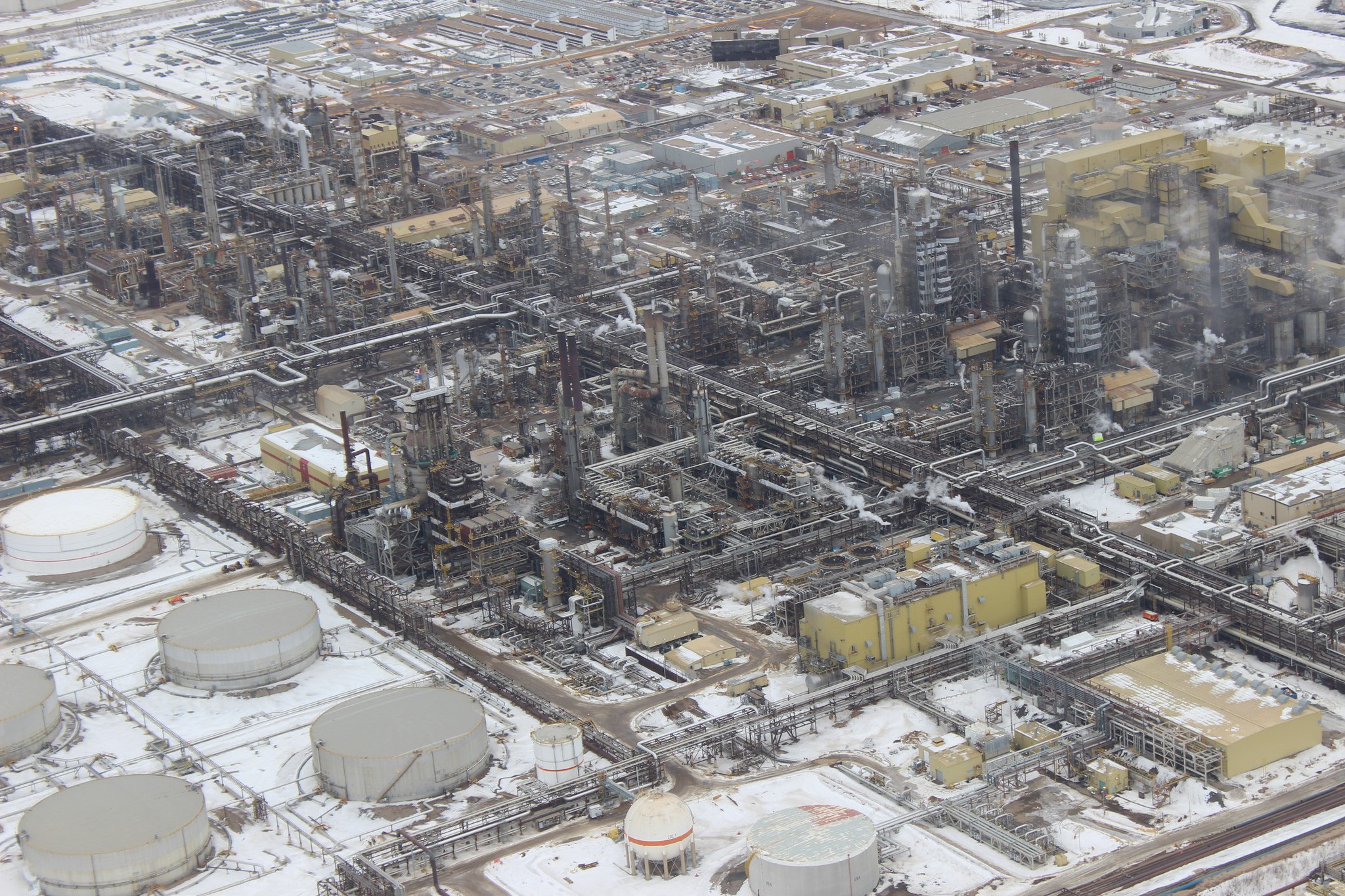
Trust us. That has long been the message from the oil sector to the Alberta public, which seems to have little choice in the matter.
In a bizarre arrangement, the Alberta oil patch pays for its own oversight through the Alberta Energy Regulator — a regulatory body 100-per-cent funded by the fossil fuel sector. What could go wrong?
The latest boondoggle was revealed by an Environment Canada studypublished in the prestigious journal Nature Communications. It showed the methodology that energy companies have used for years to calculate carbon dioxide and methane emissions from oilsands surface mining operations underestimated contributions to global warming by a whopping 64 per cent.
This eye-popping number was the result of airborne sampling over four of the largest bitumen mines in 2013 to test the accuracy of the industry’s self-reporting methods. The company figures are based on “bottom-up” calculations using the measured amount of fuels consumed in their operations. The “top-down” sampling by Environment Canada was based on actual measurements of carbon dioxide levels collected over these projects.
Emission measurements are complicated, and there are bound to be some differences in results.
However, the results from Environment Canada’s airborne testing were not even close. Suncor’s Millennium and North Steepbank mines had emissions 13 per cent higher than the company had reported. Two bitumen mines operated by Canadian Natural Resources were both about 36 per cent higher. And emissions from Syncrude’s Mildred Lake mine were 125 per cent higher — more than double — the level the industry reported.
…click on the above link to read the rest of the article…
Against ‘Sustainability’ and Other Plastic Words
Against ‘Sustainability’ and Other Plastic Words
How techno-speak is robbing us of our feelings and our future.
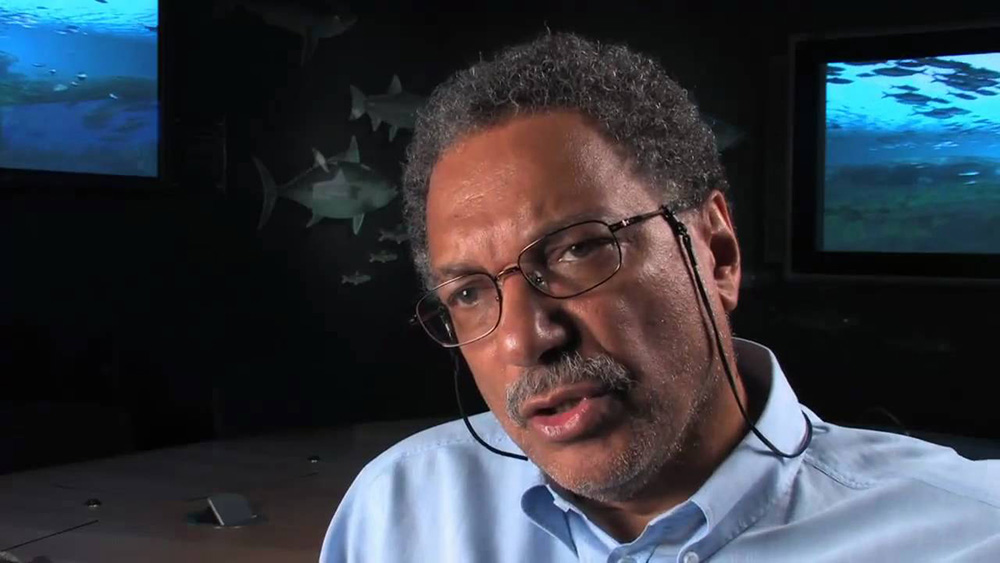
The word sustainability, were it up to me, would be extinct, wiped out, kaput.
It is hard to escape the word’s tyranny.
Economists promise “sustainable economies” while business types explore “sustainability accounting.”
Greens promise a “sustainable future,” and even greener pundits swear that technology will deliver “global sustainability.”
Miners promise to dig more sustainable holes and foresters propose to mow down old growth trees more sustainably.
The United Nations champions “sustainable development goals” as though SDGs were a delightful venereal disease.
But apparently every nation must set some SDGs, and go for it.
Why, there are even research chairs in sustainable development at universities. And I suppose, somewhere, there are people proposing to be sustainable journalists.
We have forgotten the original meaning of sustain, which stems from the Old French sostenir, meaning “hold up bear; suffer, endure.” In the 14th century — a period of pestilence and famine, it meant endure without failing or yielding.”
As civilization collapses we are going to need that old word again.
But well-intentioned greens took a word with historic meaning and turned it into plastic soup with the Brundtland report published by the United Nations in 1987.
That document let the word loose on the world like feral cats in Australia’s outback by defining “sustainable development” as “development that meets the needs of the present without compromising the ability of future generations to meet their own needs.”
…click on the above link to read the rest of the article…
Mark Carney Says Climate Change Will Bring Economic Disaster. Will the Powerful Listen?
Mark Carney Says Climate Change Will Bring Economic Disaster. Will the Powerful Listen?
Global bank heads say urgent action needed to prevent a ‘Minsky moment’ collapse in asset prices.
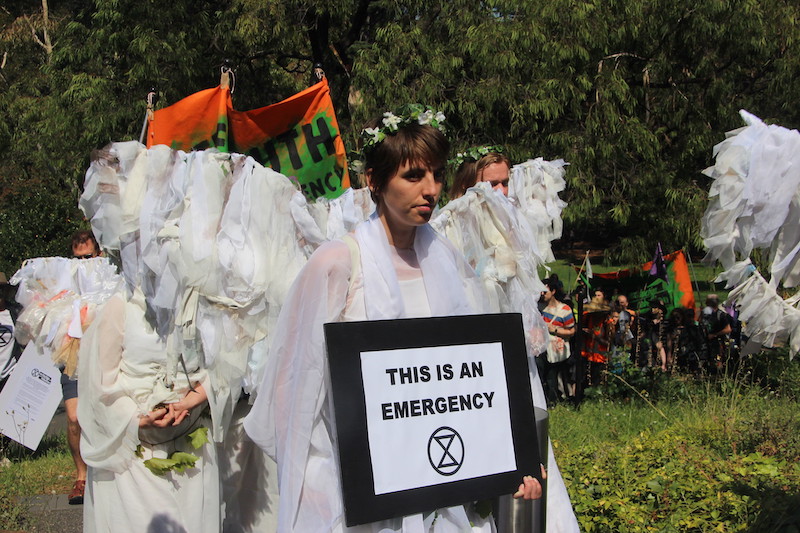
They may find themselves feeling just a little shaky, however, after a recent open letter written by Canadian Mark Carney, governor of the Bank of England, with Banque de France governor François Velleroy de Falhau and Frank Elderson, chair of the Network for Greening the Financial Services (NGFS).
These guys are not shaggy Extinction Rebellion protesters being busted in London. And teenage activist Greta Thunberg would likely ask why they took so long to admit what’s been obvious since long before she was born in 2003.
But Carney and his colleagues advise the masters of the universe; they are the consiglieri of the world’s corporate capos, and when they murmur a warning in the capos’ collective ear, wise capos heed them.
Their open letter announced the first report of the Network for Greening the Financial Services, a group that includes central bankers from around the world. That report tells the capos that “climate-related risks are a source of financial risk.” (Greta Thunberg and billions of other girls would roll their eyes.)
The report continues with equally obvious warnings: climate change will affect the economy on all levels from households to government; it’s highly certain; it’s irreversible; and it depends on short-term actions (right now, this minute) by “governments, central banks and supervisors, financial market participants, firms and households.”
Back to 1960
…click on the above link to read the rest of the article…
Beware the ‘Weaponized’ Web, Says Guy Who Helped Elect Trump
Beware the ‘Weaponized’ Web, Says Guy Who Helped Elect Trump
Cambridge Analytica whistleblower Christopher Wylie on Facebook, democracy and hope.
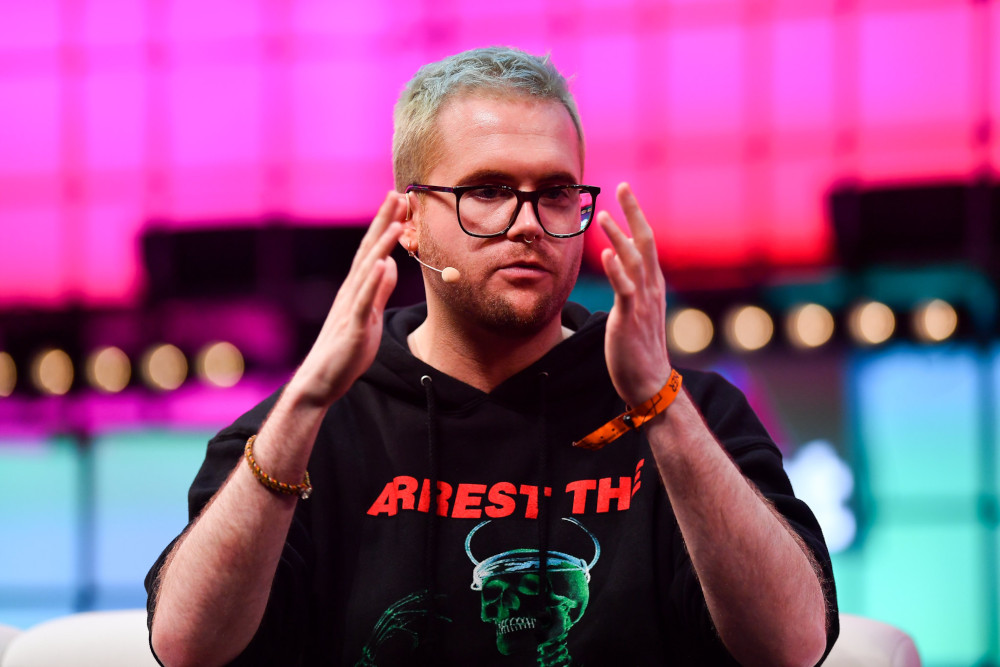
Christopher Wylie, of highlighter hair and Cambridge Analytica fame, was in Vancouver this week to talk about “Confronting the Disinformation Age.”
In 2018, Wylie blew the whistle on Facebook and consultancy firm Cambridge Analytica, cofounded by Trump campaign strategist Steve Bannon, for collecting data without users’ consent.
The extensive and personal data sets, Wylie said, were used to target people with political messaging that appealed to their specific psychologies.
“Fashion data was used to build AI models to help Steve Bannon build his insurgency and build the alt-right. And the alt-right is an insurgency,” he said in a presentation last November. “We used weaponized algorithms, we used weaponized cultural narratives to undermine people and undermine their perception of reality.”
He said the success of the targeting led to Donald Trump’s election win and the Brexit vote.
The Democracy Project wanted to know what the Victoria native had to say about democracy in Canada, and it shared this interview with The Tyee. Our interview was edited for clarity and length.
Zoë Ducklow: Who does democracy work for, and who is left out of the democratic process?
Christopher Wylie: Historically, democracy has worked for people who hold the power of information versus people who become recipients of information. Whether it’s elections or monarchs, the control of what’s allowed to be said or not said in the press has been the central aspect of power.
…click on the above link to read the rest of the article…
What’s Your Carbon Budget? You Probably Don’t Want to Know
What’s Your Carbon Budget? You Probably Don’t Want to Know
But if politicians ran governments on them, the planet might have a fighting chance.
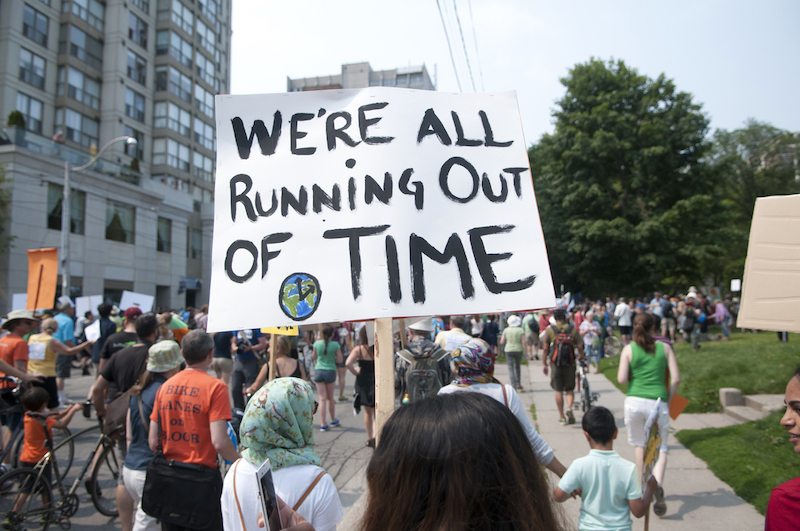
Conservative politicians are happily fighting carbon taxes and generally ignoring the issue of global warming. At the same time, an uneasy feeling is rippling through the climate-science community these days.
After decades of cautiously understating the consequences of global warming, their models are now showing temperature increases far higher than anyone expected. And other projections show that Canada, including British Columbia, is going to get a lot hotter than, say, San Francisco.
A news story in Science magazine recently reported that computer models of future climate are “running hotter” than they used to.
Older models projected temperature increases of 2 C to 4.5 C with a doubling of preindustrial carbon dioxide levels. Now at least eight models, generated in the U.S., Britain, France, and Canada, predict “equilibrium climate sensitivity” at 5 C or even higher. That is, temperatures won’t level off at 1.5 C or 2 C, as the Paris Accord requires. Instead they will keep climbing until our collective goose is well and truly cooked.
The story quotes John Fyfe of the University of Victoria’s Canadian Centre for Climate Modelling and Analysis, as saying, “It’s a bit too early to get wound up… But maybe we have to face a reality in the future that’s more pessimistic than it was in the past.”
The centre’s model, like the others, is being developed for the 2021 report of the Intergovernmental Panel on Climate Change. Unless these forecasts are drastically revised, the IPCC report will bring very unwelcome news — especially to our federal and provincial governments.
…click on the above link to read the rest of the article…



